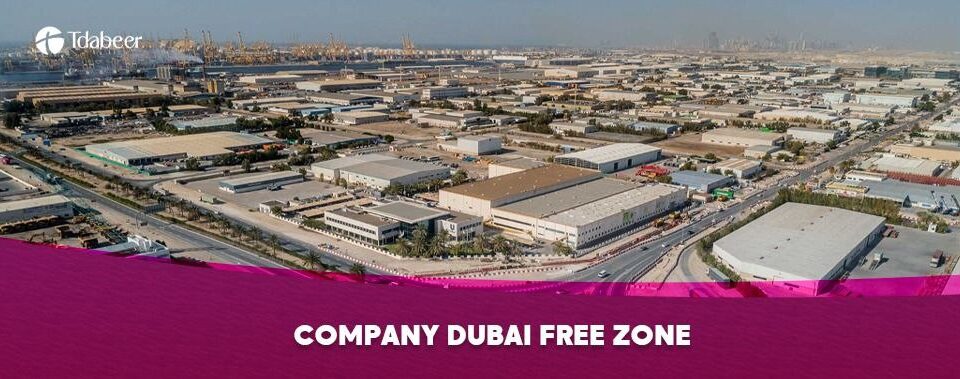
Introduction to Free Zone Companies
A free zone company is a business entity set up in designated areas called “free zones,” which offer numerous benefits to foreign investors and entrepreneurs. Free zones are particularly popular in regions like the United Arab Emirates (UAE), Singapore, and China, where they drive economic growth by promoting trade, investment, and job creation. Setting up a business in a free zone is an attractive option for many entrepreneurs, especially for those looking to tap into international markets while enjoying tax incentives and other business-friendly benefits.
Types of Free Zones
Free zones are created to promote specific types of trade and industry. They can be broadly categorized into:
1. Free Trade Zones (FTZ)
These zones are designed to facilitate the movement of goods with little to no customs intervention. Businesses that engage in import/export or re-export find free trade zones particularly advantageous.
2. Special Economic Zones (SEZ)
SEZs are government-designated areas that provide tax incentives and easier regulatory compliance. They are typically aimed at manufacturing and industrial sectors.
3. Offshore Free Zones
These zones allow businesses to operate with offshore status, which is ideal for companies dealing with international trade and holding activities.
Key Benefits of Setting Up a Free Zone Company
Why should you consider starting your business in a free zone? Here are some of the major advantages:
1. 100% Foreign Ownership
Unlike many mainland business structures that require a local partner, free zone companies can be fully owned by foreign investors. This is a huge draw for entrepreneurs who want complete control over their business.
2. Tax Advantages
One of the biggest reasons businesses flock to free zones is the tax benefits. Free zone companies are often exempt from corporate taxes and income taxes and can enjoy favorable VAT regulations.
3. Ease of Repatriation of Profits
Free zone companies can repatriate 100% of their profits back to their home country, making it ideal for businesses focused on international markets.
4. Exemption from Import and Export Duties
Businesses in free zones benefit from duty-free imports and exports, which lowers operational costs for companies involved in international trade.
Why Choose a Free Zone Over Mainland?
The decision between setting up in a free zone versus the mainland comes down to several factors:
Free Zone vs. Mainland Companies: Key Differences
- Free Zone: Offers 100% foreign ownership, tax benefits, and lower setup costs. However, you are limited in doing business within the domestic market.
- Mainland: Allows direct business within the local market but often requires a local sponsor or partner, as well as higher taxes and more regulation.
Pros and Cons of Each
- Free Zone Pros: Tax-free, full foreign ownership, easy setup.
- Free Zone Cons: Restrictions on mainland trade.
- Mainland Pros: Direct access to local market.
- Mainland Cons: Local partnership requirement, higher taxes.
Popular Free Zones Around the World
Some of the most popular free zones are located in:
1. UAE Free Zones
UAE has over 40 free zones, including:
- Dubai Multi Commodities Centre (DMCC)
- Jebel Ali Free Zone (JAFZA)
- Abu Dhabi Global Market (ADGM)
2. Singapore Free Trade Zones
Singapore’s free trade zones are designed to facilitate international shipping and logistics industries.
3. Chinese Special Economic Zones (SEZ)
China’s SEZs, like Shenzhen and Shanghai, are key hubs for manufacturing and high-tech industries.
Who Should Set Up a Free Zone Company?
Certain businesses thrive in free zones, including:
- Trading Companies
- Logistics and Shipping Firms
- Manufacturers
- IT and Technology Startups
- Consultancies
These businesses often benefit the most from the regulatory ease, tax savings, and export/import advantages that free zones offer.
Types of Free Zone Licenses
When setting up a company in a free zone, you will need to choose the right license based on your business activities:
1. Trading License
For businesses involved in import, export, and general trade.
2. Service License
Suitable for service-oriented businesses like consultancies, IT firms, and professionals.
3. Manufacturing and Industrial License
Ideal for companies engaged in manufacturing, production, or industrial operations.
Step-by-Step Process to Set Up a Free Zone Company
Setting up a free zone company is generally a straightforward process.
1. Choosing the Right Free Zone
Select a free zone that aligns with your business’s needs. Each zone is designed to cater to specific industries.
2. Applying for a License
Submit an application to the free zone authority along with your chosen license type.
3. Preparing Required Documentation
This includes passport copies, a business plan, and proof of residency.
4. Leasing Office Space or warehouse
Many free zones require businesses to lease office space or warehousing facilities as part of the setup process.
Required Documents for Setting Up a Free Zone Company
The following documents are generally required:
- Passport Copies
- Business Plan
- Proof of Residency (for certain free zones)
- Shareholder Information
How Much Does It Cost to Set Up a Free Zone Company?
Costs vary by free zone but typically include:
- Cost of Licensing: Based on the business activity.
- Rental and Office Space Fees: Mandatory leasing of office space.
- Renewal and Maintenance Fees: Annual fees for license renewal.
How to Open a Bank Account for Your Free Zone Company
To open a bank account, you’ll need:
- Business License
- Proof of Address
- Company Incorporation Documents
Key Challenges Faced by Free Zone Companies
While free zone companies enjoy many advantages, challenges include:
- Limitations on Trading Within Mainland: Often requires a local distributor or agent.
- Bank Account Restrictions: Some international banks are hesitant to work with free zone companies due to the nature of their operations.
Free Zone vs. Offshore Companies
Understanding Offshore Companies
Offshore companies are often used for international business but differ from free zones in their structure and purpose.
Tax Implications for Free Zone Companies
Free zone companies typically enjoy:
- Corporate Tax Exemptions: No corporate income tax in many jurisdictions.
- VAT and Other Taxes: Free zone companies may be exempt from VAT.
- International Tax Treaties: Some free zones benefit from tax treaties, making them more attractive for international businesses.
Hiring Employees in a Free Zone
Free zones offer visa sponsorship for employees, and labor laws are generally favorable. However, businesses must comply with local employment contracts and labor laws specific to the zone.
How to Expand Your Free Zone Business to Mainland Markets
If you want to expand to the mainland, you’ll need to:
- Obtain a Mainland License: This will allow you to trade and operate within the domestic market.
- Partner with a Local Sponsor: In many cases, you’ll need a local partner to legally do business within the mainland.
Renewing Your Free Zone Company License
Licenses must be renewed annually, and late renewal can result in penalties. The process is generally quick if all documents and fees are in order.
Setting up a free zone company offers numerous benefits, from tax advantages to 100% foreign ownership. However, the limitations on trading within the mainland and the need for careful documentation and renewal processes make it important to fully understand the rules. Free zone companies are a fantastic option for entrepreneurs looking to maximize profitability while minimizing administrative burdens.
Don’t forget to check out: What is the cost of a Dubai business license 2025?







